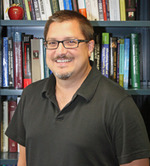What Is (Ab)Normal? How to Identify Mental Illness
Robert Krueger
Wednesday, 16 Oct 2013 at 7:00 pm – Great Hall, Memorial Union
Psychologist Robert Krueger will discuss the differences between normal and abnormal human behavior and how the two overlap. He specializes in the diagnosis of mental illness and the role of genetics in personality and personality disorders. Robert Krueger recently served on the task force to develop the upcoming 5th edition of the Diagnostic and Statistical Manual of Mental Disorder. He is the Hathaway Distinguished Professor of Clinical Psychology in the Department of Psychology at the University Minnesota. His awards include the Distinguished Scientific Award for Early Career Contribution from the American Psychological Association. Disability Awareness Week.Robert F. Krueger obtained his Ph.D. from the University of Wisconsin at Madison, and completed his clinical internship at Brown University. He has served as Associate Editor of the Journal of Abnormal Psychology and the Journal of Personality, and has served on the editorial boards of a variety of other journals. His research interests reflect the breadth of human individual differences, but an important thread of his research continues to focus on pulling together ideas in the study of personality, psychopathology, personality disorders, behavior genetics, and quantitative methods to work toward an empirically-based model of personality and psychopathology. He is Director of Clinical Training for Clinical Science and Psychopathology Research in the Department of Psychology at the University of Minnesota.
Cosponsored By:
- Psychology
- Psychology Club
- Student Disability Resources
- Committee on Lectures (funded by Student Government)
Stay for the entire event, including the brief question-and-answer session that follows the formal presentation. Most events run 75 minutes.
Sign-ins are after the event concludes. For lectures in the Memorial Union, go to the information desk in the Main Lounge. In other academic buildings, look for signage outside the auditorium.
Lecture Etiquette
- Stay for the entire lecture and the brief audience Q&A. If a student needs to leave early, he or she should sit near the back and exit discreetly.
- Do not bring food or uncovered drinks into the lecture.
- Check with Lectures staff before taking photographs or recording any portion of the event. There are often restrictions. Cell phones, tablets and laptops may be used to take notes or for class assignments.
- Keep questions or comments brief and concise to allow as many as possible.




